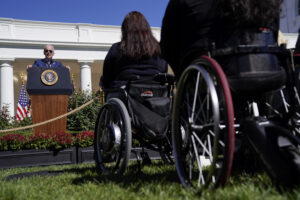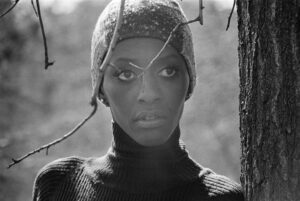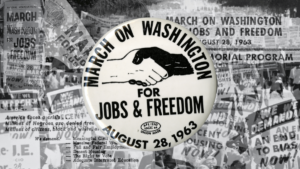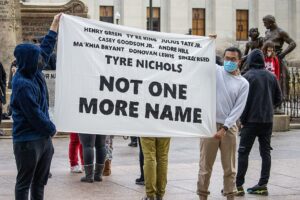The Hooey King
"There is nothing radical or un-American in holding these hearings," Rep. Peter King, R-N.Y., claimed Thursday as he launched his McCarthyite probe of American Muslims.“There is nothing radical or un-American in holding these hearings,” Rep. Peter King, R-N.Y., claimed Thursday as he launched his McCarthyite probe of American Muslims. He could not have been more wrong. If King is looking for threats to our freedoms and values, a mirror would be the place to start.
Here’s why. Imagine a young man, a Muslim, who changes in troubling ways. His two best friends become concerned, then alarmed, as the young man abandons Western dress, displays a newfound religiosity and begins to echo jihadist rhetoric about the decadence of American society. Both friends suspect that the young man has become radicalized and might even attempt some kind of terrorist attack.
One friend is Muslim, the other Christian. Does the Muslim friend have a greater responsibility than the Christian to contact the authorities? By the logic of King’s witch hunt, he does.
The Homeland Security Committee hearings that King has convened are billed as an inquiry into “The Extent of Radicalization in the American Muslim Community and That Community’s Response.” In other words, King suspects that the Muslim community is somehow complicit. Individuals of one faith are implicated; individuals of another faith are not.
As Rep. Keith Ellison, D-Minn., one of two Muslims in Congress, said in his moving testimony, King’s premise assigns “collective blame” to American Muslims. “Demanding a community response … asserts that the entire community bears responsibility,” Ellison said.
In his pugnacious opening statement, King noted that his plan to hold these hearings had been criticized by “special interest groups and the media,” which he said had gone into “paroxysms of rage and hysteria” at the prospect. “To back down would be a craven surrender to political correctness,” he said. In case someone missed the point, King later said it was our duty to “put aside political correctness and define who our enemy truly is.”
King asserted that “this committee cannot live in denial.” He then went straight there — into denial — by paying no heed to the witness best situated to answer the committee’s question.
Los Angeles County Sheriff Lee Baca testified in opposition to King’s premise, citing figures demonstrating that radical, extremist acts of crime are committed by non-Muslims as well and saying that seven of the last 10 known terrorist plots involving al-Qaida had been foiled in part by information provided by Muslim Americans. Baca said his officers have good, productive relationships with Muslim leaders and citizens. Law enforcement officials from other jurisdictions where there are large Muslim communities could have given similar testimony, had they been invited.
King is trying to peddle the hooey that moderate Muslims do not speak out against extremism. It took Rep. Sheila Jackson Lee to note the irony that among the committee’s witnesses were two devout Muslims — one Syrian-American, the other Somali-American — who were there to speak out, quite loudly, against extremism.
King, in effect, was demanding to know why he didn’t see what was taking place before his eyes. Perhaps he was distracted by the need to maintain constant vigilance for any hint of political correctness.
That’s really what King’s grandstanding is all about. The purpose of these hearings isn’t to gather information. If it were, the FBI and the Department of Homeland Security would have been asked to testify. In addition to inviting Minneapolis-based Abdirizak Bihi, the Somali-American whose nephew was recruited by the terrorist organization al-Shabab, King could have brought in police from the Twin Cities to testify about cooperation by the Somali immigrant community.
King’s intent is theatrical, not substantive; he’s not trying to elicit facts, he’s inviting catcalls — and cheers.
It should not be so, but Islamophobia is a powerful force in American politics. There are those who will applaud King for associating the phrase “American Muslim community” with the phrase “who our enemy truly is.”
But decency is a powerful force, too. The hearing’s indelible moment came when Ellison broke down in tears. He was telling the story of Mohammed Salman Hamdani, a young Muslim who rushed into the World Trade Center to try to rescue victims just before the towers collapsed. His remains were found in the rubble.
Hamdani was not just a Muslim, Ellison said, fighting to choke out words that no one could dismiss as politically correct. He was “an American who gave everything for his fellow Americans.”
Eugene Robinson’s e-mail address is eugenerobinson(at)washpost.com.
© 2011, Washington Post Writers Group
Your support matters…Independent journalism is under threat and overshadowed by heavily funded mainstream media.
You can help level the playing field. Become a member.
Your tax-deductible contribution keeps us digging beneath the headlines to give you thought-provoking, investigative reporting and analysis that unearths what's really happening- without compromise.
Give today to support our courageous, independent journalists.






You need to be a supporter to comment.
There are currently no responses to this article.
Be the first to respond.